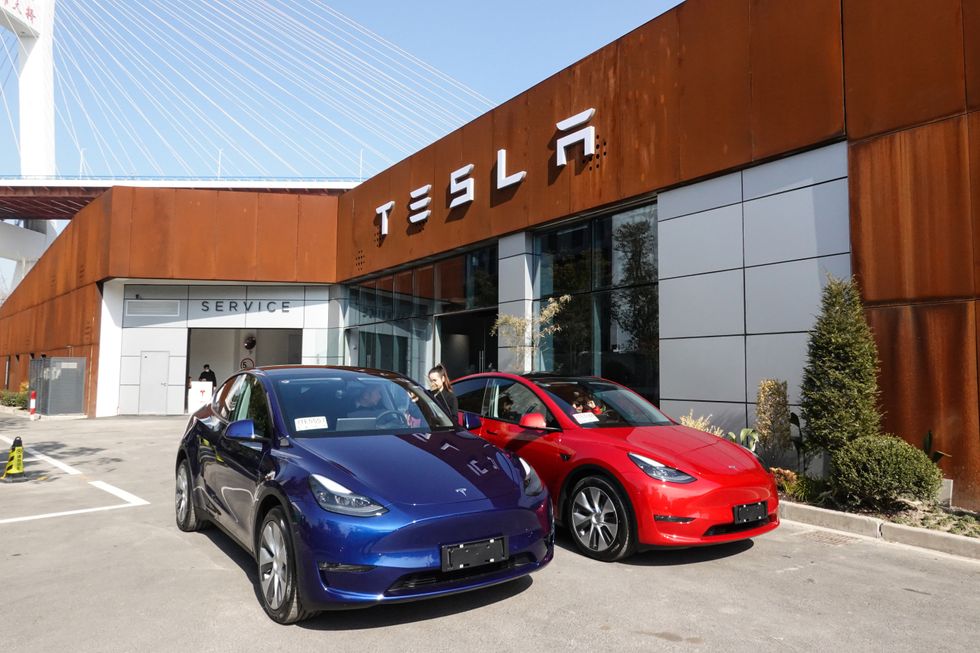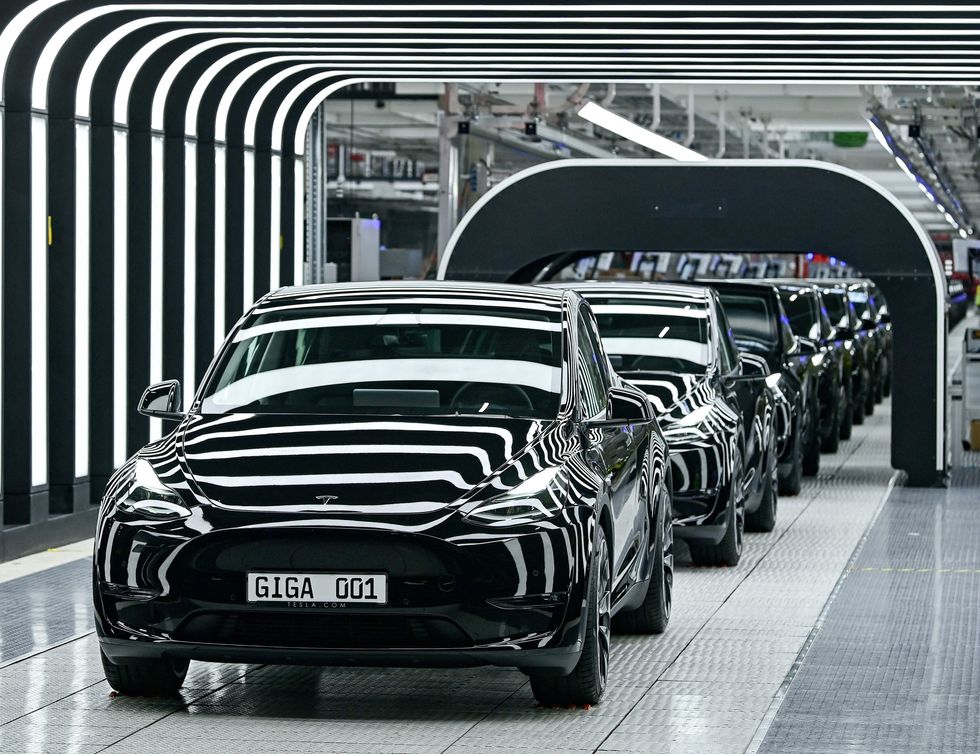Tesla pushed for Labour to make petrol drivers pay more and toughen electric car targets
Tesla urged the UK Government to increase costs for petrol car buyers while lobbying for stronger environmental regulations, documents have shown.
The electric vehicle maker pushed for tougher rules on carbon emissions from cars and lorries, while advocating that those purchasing polluting vehicles should face higher charges.
In a letter to Labour Roads Minister Lilian Greenwood, Tesla called for the Zero Emission Vehicle (ZEV) mandate to be strengthened, contrasting with other manufacturers who sought to relax the regulations.
Tesla’s position emerged through documents obtained under a Freedom of Information request by the EV newsletter The Fast Charge.
Do you have a story you’d like to share? Get in touch by emailing motoring@gbnews.uk

The carmaker owned by billionaire Elon Musk suggested that electric vehicle subsidies could be funded by charging higher fees to those buying petrol and diesel cars.
“The Government should ask those still choosing to purchase a new polluting vehicle, to pay more,” Tesla’s European boss, Joe Ward, wrote in his letter to roads minister Lilian Greenwood.
It argued that any subsidies for electric vehicles should be “revenue-neutral”, with increased taxes on fossil fuel cars funding support for electric car sales.
Tesla’s stance on making polluting vehicles more expensive aligns with Elon Musk’s belief that carbon emissions represent an “unpriced externality” that should be taxed.
The electric carmaker has consistently advocated for stricter rules on clean transport in its Government submissions.
This approach has proven lucrative for Tesla, which earned $2.1billion (£1.73billion) from selling credits in the first nine months of 2024, according to the New York Times.
The ZEV mandate requires carmakers to sell a specified number of electric vehicles annually in the UK, starting with a 22 per cent target by the end of the year.
Under the policy, manufacturers who fail to meet their EV sales targets must purchase credits from other companies who have exceeded their quotas or face a fine of up to £15,000 per polluting vehicle.
Tesla stands to gain significantly from this system, as it can sell surplus credits generated from its Chinese-made electric vehicles imported to the UK.
Several UK carmakers have pushed back against the policy, arguing that customer demand for EVs remains insufficient.
However, Tesla lobbied for the opposite approach, insisting in its letter that the ZEV mandate “must be protected and strengthened”. It argued that faster adoption of new electric vehicles would help develop the used EV market more quickly.
Tesla’s letter showed strong support for Labour’s environmental policies, stating they “applauded the Labour Party’s strong position [on] decarbonisation of the energy system by 2030, growth and net zero”.
LATEST DEVELOPMENTS:
- Millions of British drivers risk paying ‘thousands in repair costs’ from common car issue
- Petrol and diesel car ban rules could be changed to allow sales of fuel beyond 2035
- Jaguar ‘woke’ rebrand is a ‘significant risk’ and has caused used car sales to drop – ‘Not encouraging!’

This corporate stance contrasts sharply with CEO Elon Musk’s public criticism of the UK Government, who has predicted that a “civil war” will take place, as well as criticising Prime Minister Keir Starmer on X, the social media site he owns.
Tesla warned that the UK was falling behind EU standards, which require manufacturers to cut lorry emissions by 45 per cent by 2030 compared to 2019 levels.

